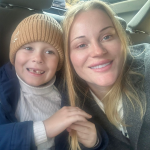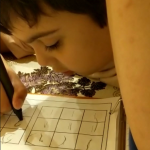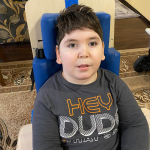How to Develop Social Skills in Children with Autism
Socialization refers to any actions a person takes with the motivation to interact with others. These can include making eye contact, smiling, wanting to engage in conversation, wishing to share emotions with another person, and so on. Developing social skills in a child enables them to interact with others. For children with autism and ASD, socialization becomes a real stumbling block, which can pose a significant barrier to further development.
What Socialization Challenges Do Autistic Children Face?
Communication difficulties. Autistic children are divided into verbal (those who can communicate orally or in writing) and non-verbal (those who can only use facial expressions or gestures to communicate). Both groups of children experience age-appropriate communication difficulties, which are often delayed in children with ASD.
Stereotypical behavior or narrow interests. An autistic child may engage in repetitive actions—such as playing the same games, focusing on the same activities, or watching the same cartoons. The psyche of an autistic child does not tolerate change, as they require a stable routine to maintain internal calm and self-regulation. Such behavior severely limits socialization for the autistic child.
Disruptions in psychosocial behavioral patterns. Children with autism often experience difficulties in their emotional sphere—they may struggle to express their emotions correctly and have trouble recognizing emotions in others. This vicious cycle leads to the formation of an incorrect mental model of behavior, where the child doesn’t know how to behave properly in different situations or manage their emotions.
How to Help an Autistic Child Acquire Social Skills
- Play activities. Use role-playing games and social scenarios. This helps children practice communication skills in a safe environment.
- Social stories. Create short stories that describe social situations to explain how to behave in different contexts.
- Visual cues. Use pictures, charts, and cards to visualize social skills, such as greetings, sharing items, etc.
- Learning by example. Show examples of positive social interactions. Movies, cartoons, or real-life situations can be used for this.
- Group activities. Encourage participation in group activities, such as sports or creative clubs, where the child can interact with peers.
- Adult support. Provide constant guidance and support so that the child feels confident in social situations.
- Feedback and encouragement. Encourage any attempts at social interaction, even if they are not perfect. Feedback should be positive and constructive.
- Individual approach. Consider the child’s unique needs and interests to make learning more engaging.
Stem Cell Transplantation for Autism: A Proven Socialization Method
Stem cell transplantation for autism is often viewed as a “last-resort therapy” when no other treatments have yielded results. This view is fundamentally incorrect. In fact, stem cell therapy should often be considered a priority, complementing well-known therapies like ABA therapy, diet, and working with a neurologist. Early rehabilitation for autism offers the best chances for a child’s rapid socialization, speech development, and access to a full education. Stem cell transplantation is practiced by experienced specialists at the Mardaleishvili Medical Center in Georgia, who have trained at top clinics in the United States.
Learn more about stem cell transplantation for children with autism—give your child the opportunity for development and socialization!
Autism Treatment Center Videos
Autism treatment with own stem cells
Cord blood association congress
International Quality Crown
Autism Treatment Reviews
Autism treatment with own stem cells
The story of Alessandro (6 years old)
Autism Patient Testimonial - Stem Cell Treatment
Clients Testimonials

Feedback from Igor, David’s father (12 years old) Read More

Feedback from Olga, Fedya’s mother Read More

Feedback from Natalia, Radomir’s mother (15 years old) Read More

Feedback from Esther, Samuel’s mother (8 years old) Read More

Feedback from Abibe, Selim’s mother (7 years old) Read More












